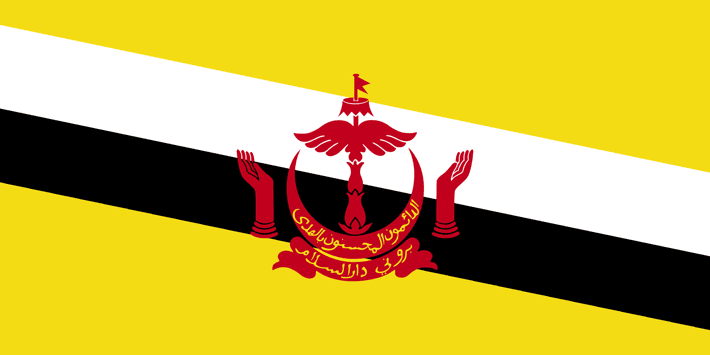 Elsewhere on the site you can read about the gambling rules that are in place in different countries around the world. Here, we are looking more specifically at the places where it is outlawed all but entirely. We are interested in things such as what the punishments are, which are obviously likely to be put in place in locations where it is entirely illegal to gamble. That doesn’t mean that gambling doesn’t happen, of course. Black market betting can be found in countries where it is actually legal to gamble, such as the United Kingdom, so it’s hardly a surprise it also takes place where it is illegal.
Elsewhere on the site you can read about the gambling rules that are in place in different countries around the world. Here, we are looking more specifically at the places where it is outlawed all but entirely. We are interested in things such as what the punishments are, which are obviously likely to be put in place in locations where it is entirely illegal to gamble. That doesn’t mean that gambling doesn’t happen, of course. Black market betting can be found in countries where it is actually legal to gamble, such as the United Kingdom, so it’s hardly a surprise it also takes place where it is illegal.
Gambling has been a contentious activity throughout history, with varying degrees of legality and social acceptance across different countries. While many nations have embraced a regulated gambling industry, there are still several places where gambling remains strictly illegal. Countries with the strictest anti-gambling laws uphold their prohibitions due to various reasons, ranging from religious beliefs to societal order and control. The severity of these laws is reflected in the punishments imposed on individuals caught gambling illegally. We don’t always hear of the punishments, however, due to the desire to keep things secret.
The Countries
Here is a look at the countries around the world where gambling is entirely illegal. We are focussing mainly on the better-known countries, though it is worth acknowledging that there are some smaller countries in the likes of the Caribbean where gambling is illegal for locals but not necessarily for tourists. For the purposes of simplicity, we’ve decided to look at countries where every form of gambling is illegal, as opposed to just casino gambling, for example. Here is a look at said countries:
Saudi Arabia
 When it comes to Saudi Arabia, there is no gambling to be found. Sharia law is fully integrated into the laws of the country, which is devoutly Muslim in nature. Saudi Arabia as a country follows a strict interpretation of Islamic law, resulting in a complete prohibition of gambling. The government enforces this prohibition stringently, and individuals caught gambling face severe consequences. The government’s stance on gambling aligns with its commitment to upholding Islamic principles and maintaining societal order. The prohibition extends to all forms of gambling, including casinos, sports betting and online gambling.
When it comes to Saudi Arabia, there is no gambling to be found. Sharia law is fully integrated into the laws of the country, which is devoutly Muslim in nature. Saudi Arabia as a country follows a strict interpretation of Islamic law, resulting in a complete prohibition of gambling. The government enforces this prohibition stringently, and individuals caught gambling face severe consequences. The government’s stance on gambling aligns with its commitment to upholding Islamic principles and maintaining societal order. The prohibition extends to all forms of gambling, including casinos, sports betting and online gambling.
Sharia law categorises gambling as a sinful and socially harmful activity. The Quran, the holy book of Islam, prohibits Muslims from engaging in any form of gambling, considering it to be a source of moral corruption and potential financial ruin. It is one of the numerous things that would be considered entirely normal in most Western countries, such as being a member of the LGBTQ+ community, that is entirely forbidden in the Kingdom of Saudi Arabia. As a result, the consequences for participating in gambling activities in Saudi Arabia are severe. Individuals caught gambling may face harsh penalties, including imprisonment, public flogging and substantial fines.
Even non-citizens found guilty of gambling can face server consequences. Thankfully, the most likely thing to happen to an outsider who is found guilty of gambling in Saudi Arabia is that they will face deportation. That is obviously significantly better than the likely outcome for a native. Despite the strict anti-gambling laws, some individuals in Saudi Arabia may still look to seek out illicit gambling opportunities, such as underground gambling networks or online gambling platforms. However, engaging in such activities comes with a significant risk that it is probably best worth avoiding.
Brunei

There is something of a common thread with the countries where gambling is illegal. In Brunei, as with Saudi Arabia, the country’s anti-gambling laws are deeply rooted in Islamic principles and the legal framework is guided by Sharia law. Brunei’s government strictly enforces the ban on gambling to uphold societal order and adhere to Islamic teachings. The penal code of the country criminalises all forms of gambling, including both physical and online gambling. This encompasses activities, such as casino gambling, sports betting, poker, lottery and other games of chance.
Engaging in gambling activities, promoting gambling or operating gambling establishments are all illegal under Brunei’s laws. The consequences for participating in gambling in Brunei can be severe. Violators may face hefty fines, imprisonment or a combination of both. The penalties are designed to act as a deterrent and to discourage individuals from engaging in gambling activities. Brunei’s Islamic culture and societal norms strongly discourage gambling. The government views gambling as a morally harmful and socially destructive activity.
As with other Muslim countries, the strict prohibition aligns with Brunei’s commitment to preserve Islamic values and maintain the well-being of its citizens. The result of the strict laws and cultural environment of Brunei is that there are limited reported cases of gambling-related prosecutions. The discreet nature of illegal gambling operations and the fear of legal consequences contribute to the rarity of publicised cases. The government actively prevents the establishment and operation of facilities for gambling in any form. Online gambling is also banned, with internet service providers required to block access to gambling websites.
In 2014, it emerged that the ex-wife of the Sultan of Brunei had attended numerous casinos in London, racking up gambling debts of more than £1 million. The then-57-year-old lost as much as £500,000 in one night at the high-roller tables of some of London’s most exclusive venues. She would regularly visit gambling venues in the likes of Singapore, Macau and London, having a £2.5 million credit at Clermont Club in Berkeley Square. The suggestion, therefore, is that it is one rule for the richest and a different rule altogether for the nation’s citizens, who just need to do what they’re told.
Qatar

Another Muslim country in which Sharia law is integrated into the laws of the nation, gambling is entirely forbidden in Qatar. That might come as a surprise to those of you that watched the World Cup being held there in 2022, on account of the fact that many people watching at home will have been placing bets on the football matches that they were watching. In addition to the oppression of members of the LGBTQ+ community, though, the Qatari government does not react well to people who choose to gamble. All forms of gambling are banned, which is why there are severe penalties to pay for those who are discovered doing it.
Citizens and residents of Qatar are both expected to comply with the gambling ban, and it is illegal for them to participate in any form of gambling, both domestically and abroad. Non-citizens residing in Qatar are also subject to the same laws and are prohibited from engaging in any gambling activities. In other words, a Qatari citizen who lives in London or some other city where gambling is legal is expected to obey the rules around the subject that are in place in Qatar. There is a desire to ensure that the Quran is obeyed irrespective of where the people find themselves.
In May of 2023, 19 people were arrested in the country after they had organised an illegal gambling operation that took place in a residential building. Representatives from the Ministry of Interior, specifically the Al Rayan and Al Shamal Security Departments, arrested an individual who had transformed his home into a gambling hub. Those involved were of Arab, European and Asian heritage, with ‘financial evidence’ of the act totalling QR174,508 and $10,200, as well as some other currencies, were found. Not only that, a stockpile of alcoholic beverages were also found.
United Arab Emirates

Fans of Manchester City and Newcastle United might be surprised to learn that the countries where their owners are from, namely the United Arab Emirates and Saudi Arabia, respectively, don’t allow gambling. Much as with horse racing, there are close ties between football and betting companies, so it is interesting that citizens of the owners of the clubs won’t be allowed to place bets on the outcome of matches without breaking the law. The U.A.E. fits in with the other countries we’ve already mentioned, insomuch as gambling is illegal because of the Islamic law in place there.
In the United Arab Emirates specifically, the Penal Code’s Article 414 says that someone caught placing bets can be sentenced to up to two years in prison. Meanwhile, the Telecommunications Regulatory Authority is responsible for providing the internet and prevents access to online casinos for people in the country. It is yet another example of a nation where the links to the teachings of the Quran mean that there is a sense of anyone found breaking the laws will be clamped down on in the strictest terms, which is why illegal gambling is hidden.
Interestingly, news broke in May of 2023 that a sea change might be on its way in the country. Wynn Resorts Limited, the casino and hotel operator that is based in Las Vegas, announced plans to build a $3.9 billion gaming resort in the U.A.E. Though there was no explicit mention of gambling taking place, there are tentative suggestions that a change to the rules in the country is being considered. It would allow the United Arab Emirates to eventually move past Singapore as a centre for gambling in the East, becoming the first Gulf state to legalise casinos.
Cuba

In the 1940s and 1950s, gambling was prevalent in Cuba. In fact, such was the acceptance of it there that it was known as the ‘Las Vegas of the Caribbean’. There were around ten large casinos and as many as 50 smaller gambling establishments around the country. In 1959, however, Fidel Castro overthrew Fulgencio Batista and immediately moved to ban all forms of gambling in the country. This might well be because of the fact that most casinos were tied to members of the American mafia, meaning that the great enemy that was the United States had links to the country that Castro didn’t like.
It is also likely to be down to the fact that communism doesn’t lend itself to an activity, such as gambling, given the extreme capitalist nature of that as a pastime. According to Ley 86 1959*, the main legislation around gambling in the country, anyone involved in any form of gambling might face charges. That even includes players, who can expect to be fined or even imprisoned for taking place in illegal gambling. Though online gambling isn’t strictly banned, on account of the gambling legislation dating back to 1959, the reality is that the complete ban on betting is considered to take it into account.
Nowadays, one of the most popular forms of gambling in the country involves illegal cockfights. This bloodsport is usually to be found in the countryside of Cuba, with most sensible people wishing to steer clear of it not just because of the fact that it isn’t legal but also thanks to the involvement of animal cruelty. There might be a return of some form of gambling to the country in the future, if for no other reason than it might supply money to a country that is extremely poor. One of the biggest exports is people, who go on to work in numerous different areas after being well educated, so allowing gambling could see more tourists arrive.